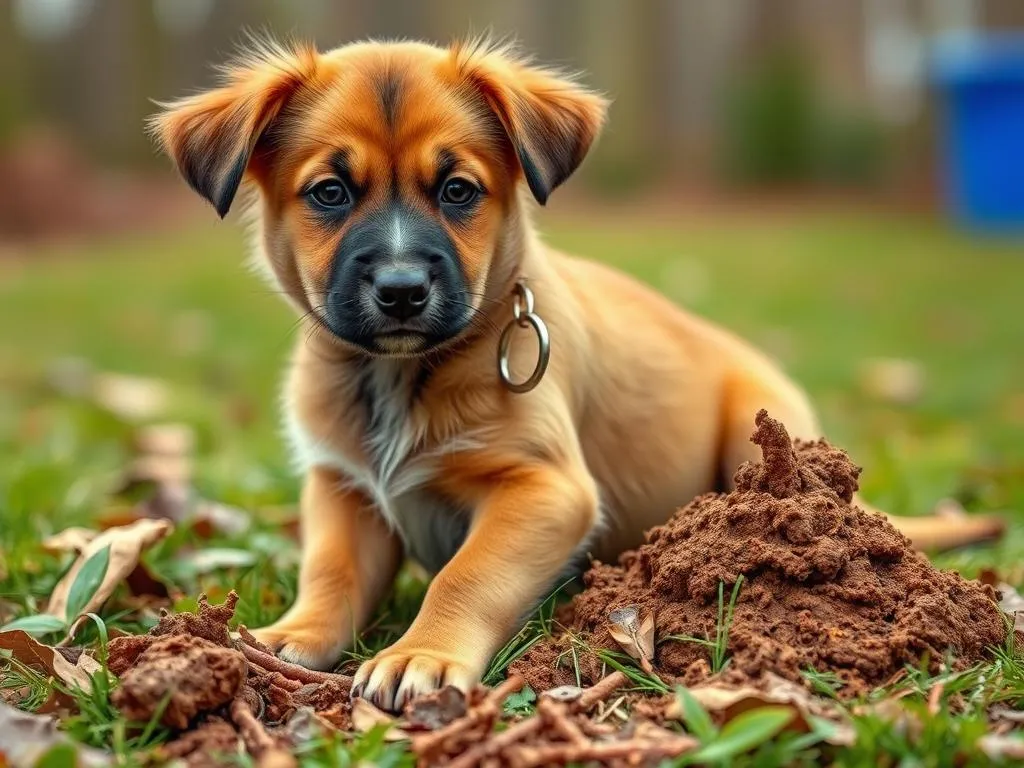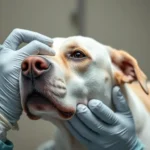
Understanding your puppy’s health is crucial, especially when it comes to their bowel habits. As a new puppy owner, you may find yourself asking, why does my puppy poop so much? This question is common among pet parents, as puppies can have particularly active digestive systems that lead to frequent bathroom breaks.
In this article, we’ll explore the reasons behind your puppy’s pooping frequency, how to differentiate normal pooping habits from excessive ones, and what you can do to manage their bowel movements effectively.
Understanding Puppy Digestion
Puppy Digestive System
Puppies have unique digestive systems that differ significantly from adult dogs. Their metabolic rates are higher, which means they process food more quickly. A puppy’s gastrointestinal tract is still developing, making it more sensitive to dietary changes, infections, and parasites.
When puppies consume food, it travels through their stomach and intestines, where nutrients are absorbed. This process is generally faster in puppies, resulting in more frequent bowel movements compared to adult dogs. Understanding how a puppy’s digestive system works is essential in answering the question, why does my puppy poop so much?
Common Digestive Issues in Puppies
Puppies may experience digestive issues that can lead to changes in their bowel habits. Some signs of digestive problems include:
- Diarrhea or loose stools
- Vomiting
- Lack of appetite
- Lethargy
Common conditions affecting puppy digestion include:
- Parasites: Worms and giardia can disrupt normal digestion.
- Infections: Bacterial or viral infections can lead to gastrointestinal upset.
Recognizing these signs early on can help you address potential problems before they escalate.
Normal vs. Excessive Pooping
What is Normal Puppy Pooping Frequency?
The frequency of puppy bowel movements can vary based on age, diet, and individual health. In general, puppies may poop anywhere from 3 to 5 times a day. Factors influencing this frequency include:
- Age: Younger puppies tend to poop more often due to their smaller bladders and faster metabolisms.
- Diet: A high-quality diet with adequate fiber can regulate bowel movements.
When is Pooping Considered Excessive?
Excessive pooping is typically defined as more than 5 bowel movements a day, particularly if accompanied by other symptoms. Indicators that pooping may be excessive include:
- Consistency Changes: Watery stools or unusual colors.
- Behavior Changes: Signs of discomfort or distress during bowel movements.
- Other Symptoms: Vomiting, lethargy, or loss of appetite.
If you notice these signs, it may be time to investigate further.
Factors Influencing Puppy Bowel Movements
Diet and Nutrition
A balanced diet is crucial for your puppy’s overall health and can greatly impact their bowel movements. Puppies require a diet rich in protein and essential nutrients to support growth and development.
Types of puppy food can also influence pooping frequency:
- Dry Food: Generally leads to firmer stools and may require less frequent bathroom breaks.
- Wet Food: Can result in softer stools and potentially more frequent pooping.
It’s essential to choose a high-quality puppy food that meets their nutritional needs.
Hydration
Water intake plays a vital role in digestion. Puppies should have access to fresh water at all times. Proper hydration helps maintain healthy bowel movements and prevents constipation.
Signs of dehydration in puppies may include:
- Dry gums
- Lethargy
- Loss of skin elasticity
If you notice these signs, ensure your puppy is drinking enough water, especially after exercise or in hot weather.
Exercise and Activity Levels
Exercise is not only important for a puppy’s physical health but also for their digestive health. Regular activity stimulates digestion and can help regulate bowel movements.
Puppies need about 5 minutes of exercise per month of age, up to twice a day. For example, a 3-month-old puppy should get around 15 minutes of exercise. Incorporating playtime and walks into their daily routine can help keep their digestive system functioning well.
Health Conditions That Cause Increased Pooping
Parasites
Parasites are one of the most common causes of increased pooping in puppies. Common parasites include:
- Roundworms and hookworms: Can cause diarrhea and weight loss.
- Giardia: A protozoan that leads to watery diarrhea.
Symptoms of parasitic infections may include:
- Vomiting
- Pot-bellied appearance
- Poor coat quality
Regular deworming and vet check-ups can help keep your puppy healthy and free from parasites.
Infections and Diseases
Bacterial and viral infections can disrupt normal digestion and lead to increased pooping.
Symptoms to watch for include:
- Diarrhea with blood
- Vomiting
- Fever
Some common infections affecting puppies include parvovirus and kennel cough. Vaccination and proper hygiene can help protect your puppy from these diseases.
Food Allergies and Intolerances
Food allergies and intolerances can also lead to increased bowel movements. Certain ingredients can trigger gastrointestinal upset in sensitive puppies.
Signs that a puppy may have food allergies include:
- Itchy skin or ear infections
- Chronic diarrhea or gas
- Vomiting after meals
Common allergens for puppies include beef, chicken, dairy, and grains. If you suspect your puppy has a food allergy, consult your veterinarian for guidance on dietary changes.
When to Seek Veterinary Help
Signs of Serious Health Issues
It’s essential to monitor your puppy’s health closely. Warning signs that indicate a need for immediate veterinary attention include:
- Persistent diarrhea or vomiting for more than 24 hours
- Blood in the stool
- Significant changes in appetite or energy levels
- Severe abdominal pain or bloating
If you notice any of these symptoms, it’s crucial to seek veterinary care promptly.
Diagnostic Tests
During a veterinary visit, your veterinarian may perform several diagnostic tests to determine the cause of your puppy’s increased pooping. Common tests may include:
- Fecal examinations: To check for parasites or infections.
- Blood tests: To assess overall health and detect underlying issues.
- X-rays or ultrasounds: To examine the gastrointestinal tract.
Understanding what to expect during a veterinary visit can ease your concerns and help ensure your puppy receives the appropriate care.
Managing Your Puppy’s Bowel Movements
Dietary Adjustments
If you notice your puppy is pooping excessively, consider adjusting their diet. Here are some tips for managing pooping frequency:
- Choose high-quality puppy food: Look for options with balanced nutrients and appropriate fiber levels.
- Gradually change diets: If switching foods, do so slowly to avoid gastrointestinal upset.
Recommended foods for sensitive stomachs include those with easily digestible ingredients, such as chicken and rice formulas.
Establishing a Routine
Creating a consistent feeding schedule can help regulate your puppy’s bowel movements. Feeding your puppy at the same times each day encourages their body to adapt and establish a routine for bathroom breaks.
How to create a bathroom break routine:
- Take your puppy out first thing in the morning.
- Provide regular bathroom breaks after meals and playtime.
- Praise and reward your puppy for going outside to encourage the behavior.
Behavioral Training
Training techniques can also help encourage regular bathroom habits. Positive reinforcement is key; praising and rewarding your puppy when they go outside can reinforce good behavior.
Consistency is crucial. If your puppy has an accident indoors, clean it thoroughly and avoid punishment, as this can confuse them. Instead, focus on reinforcing the desired behavior outdoors.
Conclusion
Monitoring your puppy’s health and bowel habits is essential for their overall well-being. Understanding the factors that influence pooping frequency can help you manage their needs effectively. If you find yourself wondering, why does my puppy poop so much? remember to consider their diet, hydration, exercise, and any underlying health issues.
If concerns about excessive pooping persist, don’t hesitate to consult with your veterinarian for guidance and support. Your puppy’s health and happiness depend on your attentiveness and care.
FAQs
-
Is it normal for my puppy to poop more than five times a day?
Yes, puppies can poop frequently, but if it exceeds five times and is accompanied by other symptoms, consult your vet. -
What should I do if my puppy has diarrhea?
Monitor their condition, ensure they stay hydrated, and consult your vet if diarrhea persists for more than 24 hours. -
Can changing my puppy’s diet cause more frequent pooping?
Yes, dietary changes can lead to temporary changes in bowel movements. Transition to new foods gradually to minimize digestive upset. -
How can I tell if my puppy is dehydrated?
Check for dry gums, lethargy, and loss of skin elasticity. Ensure your puppy has constant access to fresh water.









